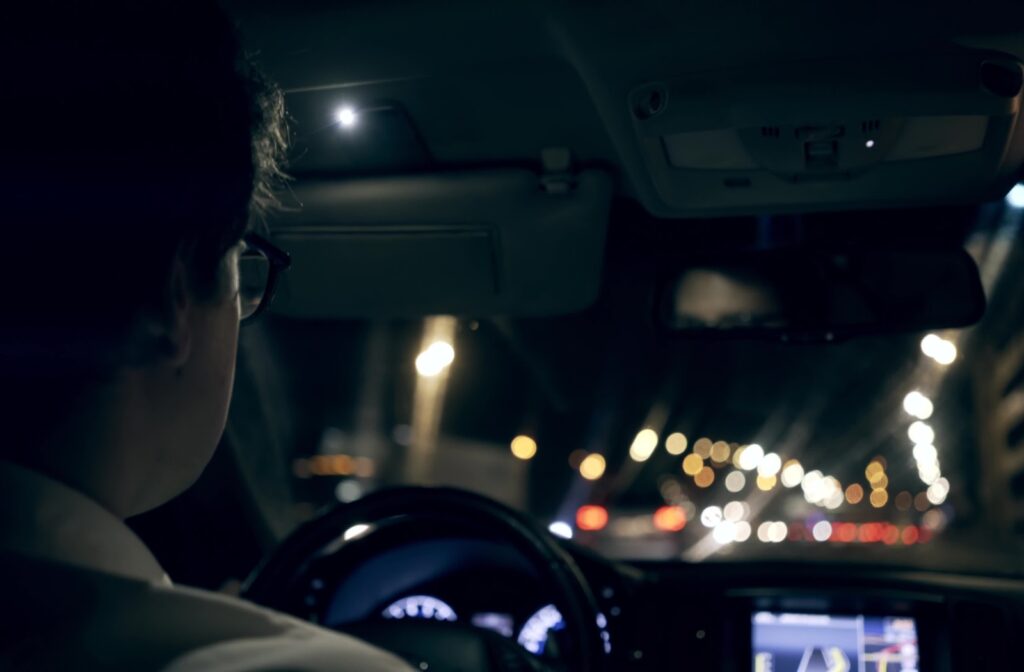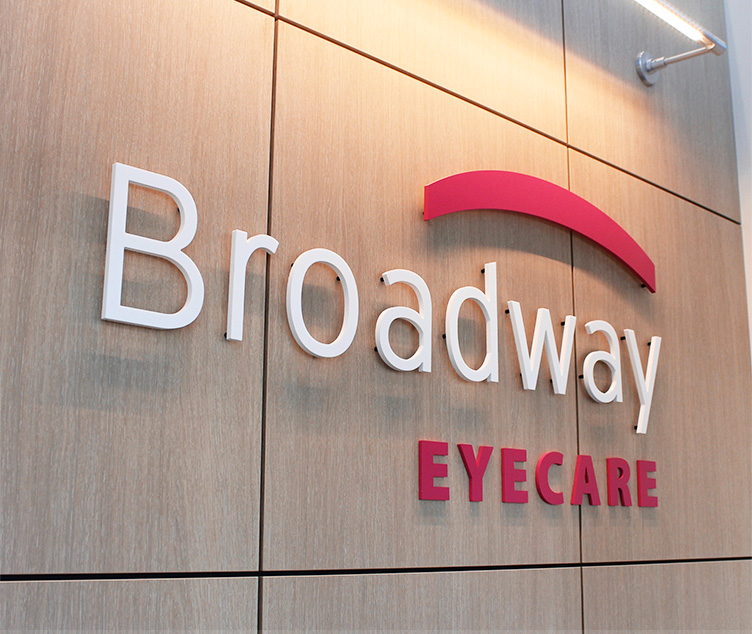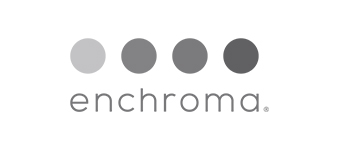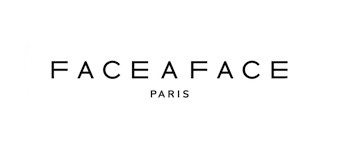Driving at night can feel daunting for many people. Blinding headlights and dimly lit roads often make night driving more challenging than daytime journeys.
You may benefit from specialized eyewear if you’ve noticed that it’s harder to spot road signs or that glare from oncoming traffic feels overwhelming at night.
There isn’t a one-size-fits-all answer, though. Some people find that yellow-tinted glasses offer improved contrast, or anti-glare lens coatings help. However, depending on your vision needs, you may not experience the same benefits.
Discussing your options with your eye doctor during your eye exam is essential to find the right fit. Your optometrist can offer tailored recommendations on lens options to suit your lifestyle and needs.
Understanding Our Vision at Night
Night or low-light driving can affect our vision in a few ways, including age-related changes.
How Eyes Adjust in Low Light
Have you ever noticed how it takes a few moments for your eyes to adapt when turning off a bright light at night? That’s your pupils working to adjust.
When we’re in low-light conditions, our eyes rely on light-sensitive cells in the retina called rods. Rods help us detect shapes and movement. But night vision is never as sharp as daylight vision, leaving us more vulnerable to vision challenges at night.
Impact of Aging on Night Vision
Unfortunately, our night vision tends to weaken as we age. Changes in the eye can reduce how well light enters and is processed. Cataracts can blur your vision or make lights appear more glaring.
Combined with slower adaptability to changing light levels, aging can make night driving particularly difficult.
What Causes Difficulty with Glare While Driving at Night?
Glare plays a significant role in making night driving challenging. Common culprits are oncoming headlights, reflective road signs, and wet road surfaces.
Glare happens because bright lights scatter inside your eyes, reducing contrast and clarity, making driving at night feel uncomfortable and unsafe.
For some people, glare sensitivity may stem from specific eye conditions such as astigmatism, cataracts, or dry eyes. If glare affects you more than others, it could be worth getting your vision checked by your eye doctor.
The Risks of Night Driving & Impaired Vision
Driving at night is statistically more dangerous than driving during the day. Reduced visibility, slower reaction times, and visual distractions like glare can all contribute to accidents.
Impaired vision, in particular, can make it difficult to read road signs, identify hazards, judge distances, and, most importantly, react quickly in dim lighting.
Whether you’re a new driver or someone with years of experience behind the wheel, equipping your eyes for night driving is crucial for your safety.
Should I Have Eyewear for Night Driving?
If night driving feels particularly challenging, eyewear designed for low-light or glare-heavy conditions might be a worthwhile investment. Here are 2 common types of glasses people turn to to enhance their vision in motion.
Anti-Glare Glasses
Anti-glare or anti-reflective glasses are designed to reduce reflections from headlights and other bright lights, making your vision clearer and reducing eye strain.
Anti-glare glasses aren’t just useful at night. They can also make a big difference in daytime environments with harsh artificial lighting.
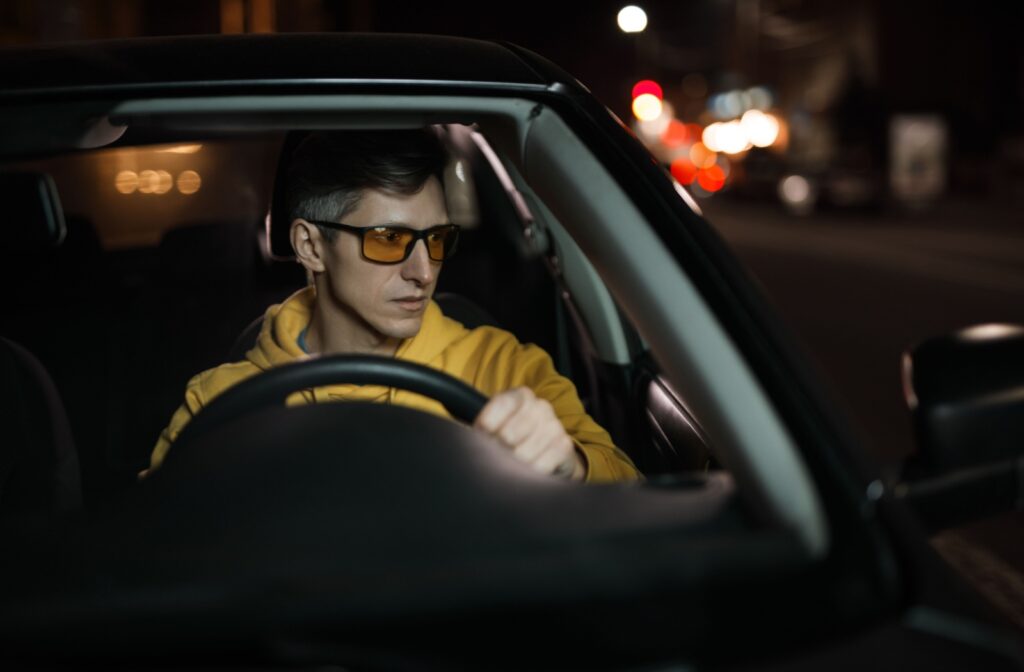
Night Driving Glasses
Night driving glasses often feature yellow-tinted lenses that filter out blue light to enhance contrast and reduce glare.
While some drivers report that these glasses help sharpen visual clarity, others report little to no benefit, depending on their eye health and driving conditions. The effectiveness of night driving glasses can depend on individual circumstances, such as eye conditions or specific driving environments.
How to Choose the Right Eyewear
Not all glasses for driving at night are created equal, and finding the right option hinges on understanding your personal vision needs. Here are a few pointers when choosing night-driving eyewear.
Get a Professional Eye Exam
Before selecting glasses, consult your eye doctor for a comprehensive eye exam. Your optometrist can assess whether underlying eye conditions impact your night vision and recommend tailored options to address your specific concerns.
Prioritize Anti-reflective Coating
Look for glasses with high-quality anti-reflective coatings, which effectively reduce glare without distorting your view.
Skip Overly Tinted Lenses
While yellow-tinted night glasses sound great in theory, they can reduce the amount of light reaching your eyes, which might not always be ideal for night driving. Your optometrist or optician can help find a lens that strikes a helpful balance.
Check Lens Quality
Choose reputable brands that provide high-quality, scratch-resistant lenses for durability and safety. Quality can significantly impact how effectively your glasses support your vision.
Ways to Improve Night Driving Vision
Beyond eyewear, here are some tips to help you see better and drive safer at night:
- Keep your windshield & mirrors clean
- Dirt and smudges amplify glare, so keep your windows & mirrors spotless
- Use proper lighting for the right conditions
- Keep your headlights clean, properly aligned, & functioning
- Take breaks when needed
- Driving while fatigued impairs information processing & reaction time
- Follow an eye-friendly diet for healthy vision
- Certain nutrients, like Vitamin A & lutein, support eye health & vision
Get Personalized Recommendations for Night Driving Eyewear
If night driving is troubling you, don’t ignore it. Blurry vision, difficulty seeing road signs, or sensitivity to headlights could indicate that you need specialized eyewear or an updated prescription.
At Broadway Eyecare, we offer comprehensive eye exams and a range of specialty lens options to make night driving safer and more comfortable.
Book an appointment today to receive personalized recommendations tailored to your needs. Don’t just see the road ahead—see it clearly.


